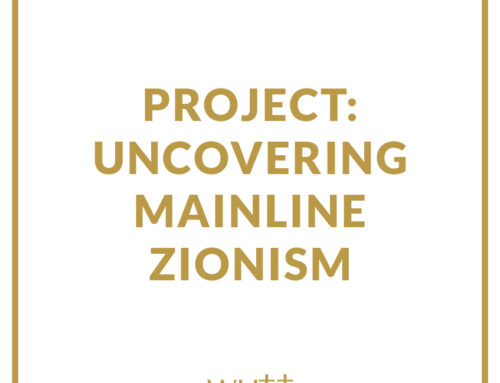Hudson Institute
Project for Civil Justice Reform
MEMORANDUM
TO: Frank Wolf
FROM: Michael J. Horowitz
DATE: October 16, 1997
As requested, here’s a status memo re the Wolf-Specter bill.
- For starters, it should be pointed out that the groups supporting the bill that cleared Chris Smith’s subcommittee have agreed to four major, difficult revisions only because of your insistence. Given the lives at risk as a result of today’s mounting persecutions, and the strong lobbying campaign directed at House International Relations Committee members, you believed that serious compromise was necessary to achieve rapid, consensus support for the fill. The contrary view, held by most of the bill’s supporters, was to oppose the compromises and convene an emergency summit meeting of Christian and religious leaders at which to plan an intensive, nationwide campaign in support of an even tougher sanctions bill. (Such a campaign would involve ministers from many denominations meeting with all Members of Congress in their home districts, a telephone and petition drive sponsored by denominations and religious broadcasters and the religious press, and follow-ups to the Day of Prayer for the Persecuted Church in which over 100,000 churches are expected to participate on November 16 — all conducted during an election year.) As usual, you prevailed thereby causing all members of the coalition to support the following compromises that, while difficult, still (if barely) preserve Wolf-Specter’s core.
| Moving the Persecution Monitoring Office from the White House to the State Department; | |
| Sharply modifying the general (non-Sudan) trade provisions (per Tom Campbell’s language) to ensure that trade sanctions are limited to barring the export of torture, surveillance and police goods and services; | |
| Broadening the President’s waiver authority to permit reinstatement of “any or all” non-humanitarian aid to persecuting countries, and further allowing reinstatement waivers on the ground that they will reduce persecution. (The latter provision, negotiated between the Family Research Council and the National Catholic Conference of Bishops, is attached); and | |
| Critically, agreeing to a “closed rule” for House debate — at which no amendments negating the above compromises could be offered. |
- Notwithstanding the above revisions, it is my understanding that two generally applicable amendments may be offered by Wolf-Specter opponents. These amendments are viewed by groups ranging from the Christian Coalition to the National Conference of Catholic Bishops, from the Campaign for Tibet to the Southern Baptist Convention, from the Family Research Council to the Religious Action Center of Reform Judaism, from the National Jewish Coalition to the National Association of Evangelicals, as “killer amendments.” They are:
| An amendment triggering the bill’s modest sanctions — themselves imposed only after a long hearing process and an extended probation period — only if and as the President affirmatively puts them in place; and | |
| An amendment that would redefine non-humanitarian foreign aid to exclude Export-Import Bank and OPIC subsidies — i.e., that would continue such subsidies for deals made with persecuting countries. |
- That the above amendments will be regarded as killer amendments should go without saying.
- As to the first amendment, which the Administration and some Democratic Members appear to be pursuing, its triggering mechanism will ensure that Wolf-Specter will be without force — that non-humanitarian foreign aid will continue to be given to regimes with political/economic influence no matter how much they persecute minority religious communities. Given Wolf-Specter’s broad (and now expanded) Presidential waiver authority, the sole purpose and effect of the amendment, as Abe Rosenthal and others have written, will be to shield the President from any political accountability for non-humanitarian foreign aid that continues to be given to regimes committing “widespread and ongoing [acts of] abduction, enslavement, killing, imprisonment, forced mass resettlement, rape or crucifixion or other forms of torture.” the amendment is also inherently cynical in that the President already has discretionary authority to suspend or withdraw non-humanitarian aid.
- The second amendment will simply ensure business-as-usual commercial relations with most persecuting countries — and removes a key pressure point on persecuting countries that do not receive conventional foreign aid. The amendment would also exploit if not mock Wolf-Specter’s deliberate refusal to impose tariff or trade sanctions on persecuting countries — a decision that its supporters and sponsors entered into somewhat reluctantly and after long debate. It is fair to say that reinstatement of automatic Ex-Im and OPIC financing for deals with persecuting countries will strongly move church and other groups that now support Wolf-Specter in the opposite direction — towards a bill establishing tariff barrier and trade ban sanctions on persecuting countries.
- A story in this morning’s Washington Post indicates that a Sudan-specific amendment to exclude exports of gum arabic from the bill’s broad trade-ban provisions is also likely to be offered. This amendment will be strongly resisted by the coalition. As the Member of Congress who has visited Sudan and is, along with Baroness Cox, the Western legislator most knowledgeable about the regime’s genocidal policies, we look for your leadership on this amendment. As you know, except for substituting Sudan for South Africa and “religious persecution” for “apartheid,” Wolf-Specter adopts, verbatim, the language of the anti-apartheid law. It would be difficult to understate the consensus and passion of many church groups to ensure that the Sudanese regime’s deliberate policies of murder, starvation, mass resettlement, forced conversions, enslavement and even crucifixion are dealt with by Congress no less forcefully than it attacked the evils of apartheid. (Or the evils of Haiti’s regime, for that matter.) In a sense, many of us are grateful for the gum arabic amendment, as it permits us to learn of a critical source of the regime’s income and support. Clearly, Wolf-Specter’s potential impact on gum arabic trade will be far less unsettling to the American economy than was the anti-apartheid trade ban. As such, all coalition members believe that Wolf-Specter’s Sudan provisions — operating in concert with covert U.S. military aid already provided to overthrow the Sudanese regime — should and will rapidly help bring down the Sudanese regime precisely as anti-apartheid laws cause to happen to South Africa’s former regime. Among other things, this is the way, and in the coalition’s view the only way, to ensure the long-term stability of our gum arabic trade.
- You of course know how difficult it was for some coalition members to accept major compromises to a bill that had already cleared the Smith subcommittee — particularly the amendment moving the Religious Persecution Monitoring Office to the State Department and the “closed rule” amendment that sacrifices the coalition’s far, far greater influence over open Floor debate than it has over Committee mark-up votes. (You also know that the expanded waiver provision, however much difficulty it caused some supporting groups, cements and further ensures strong and active support for Wolf-Specter by the National Conference of Catholic Bishops.)
- Finally, as you know, Richard Land of the Southern Baptist Convention is convening a November 19 summit meeting of senior national leaders to discuss the religious persecution issue and Wolf-Specter’s progress. Having deferred to your judgment re the need to support the above-cited compromises, all will work hard to achieve a consensus bill within the coming weeks — one that will allow Wolf-Specter to move as quickly through Congress, and with as much support, as did Jackson-Vanik. Come the November 16 Day of Prayer and the November 19 summit meeting, they should know how well they’ve succeeded. If killer amendments still loom possible (or have occurred in mark-up) despite the above-cited compromise amendments, the coalition’s groups know the value of the commitments made by the Speaker and Senator Lott for a 1998 Floor vote on Wolf-Specter. They are ready to deal with whatever comes; all are fully prepared for a historic, election-year debate over a presently moderate bill that seeks, finally, to end the silence over, and fact of, worldwide religious persecution.


